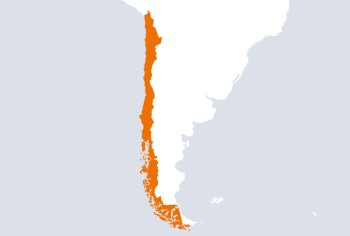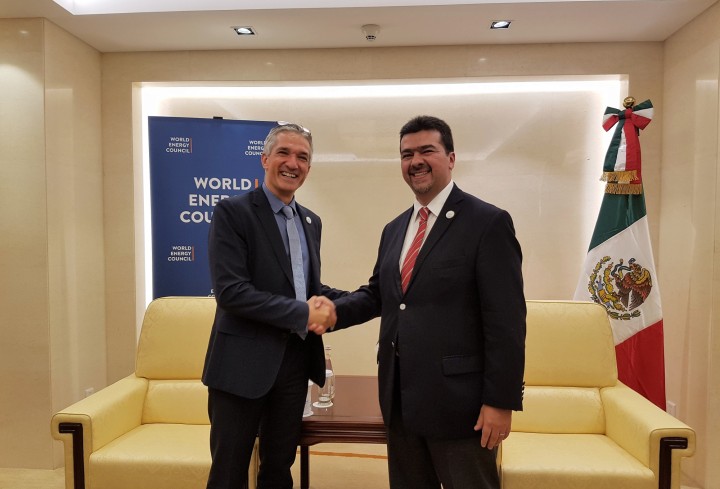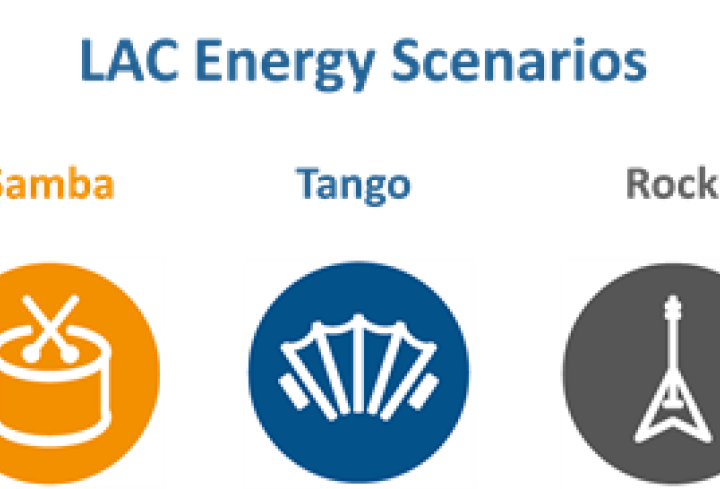The Chilean National Committee aims to promote sustainable energy development in Chile, as a part of the World Energy Council's energy vision. As a member of the World Energy Council network, the organisation is committed to representing the Chilean perspective within national, regional and global energy debates. The committee includes a variety of members to ensure that the diverse energy interests of Chile are appropriately represented. Members of the committee are invited to attend high-level events, participate in energy-focused study groups, contribute to technical research and be a part of the global energy dialogue.
M. Trinidad Castro Crichton currently serves as Secretary of the World Energy Council’s Chilean Member Committee. Her background is in management in the nonprofit sector and she has worked as a university professor.
Crichton is experienced in designing new operational and commercial strategies and projects focused on the needs of the beneficiary and the community as well as change management and implementation of new practices. With an integral vision, she has a strong orientation to achievement and management by objectives with a solid service vocation.
Crichton has a bachelor’s degree in Business, administration and economy and graduated in Public Policy and Relational Mindfulness.

Energy in Chile
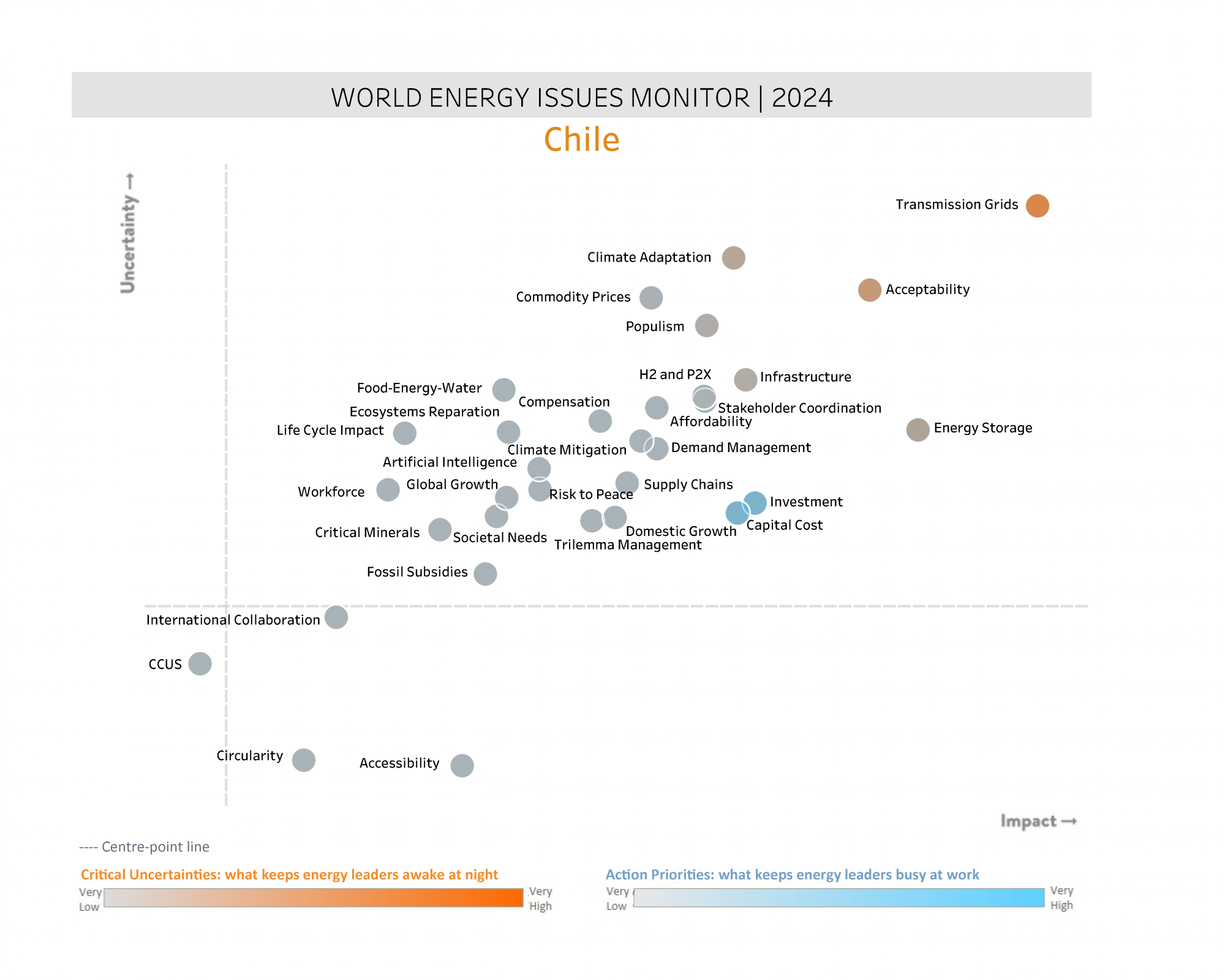
Chile continues to consolidate its leadership in different renewable energy schemes in Latin America. The actions taken to incentivize the development of renewable energy have been successful, and the corresponding regulations have been put in place. The 2024 World Energy Issues Survey results indicate that renewable energy is no longer a top action priority. However, this widespread development and scale-up have created new challenges.
The increase in project development of solar and wind energy has congested the transmission infrastructure in several regions in Chile. Increasingly, stakeholders are questioning the market design, as zero solar hour prices have caused some projects to go bankrupt. The current infrastructure is insufficient to supply consumption centers beyond the mining industry. Consequently, the development of transmission lines has become a high-impact priority.
This transmission problem has created new opportunities. In the north of Chile, for example, the deployment of energy storage (also a high-impact priority) was one of the main solutions to cover the risk of the spot market due to higher prices of decoupling. In parallel, a new scenario for distributed energy generation development, including batteries, is set. Chile has created incentives for small to medium-scale generation projects (<9MW), which enabled a high penetration of distributed solar energy, in recent years complemented with battery storage.
Infrastructure planning is government-led, and current transmission line plans will take at least 6 years to be materialized. Their capacities were not timely increased in line with the rise in variable renewable energy. As the infrastructure issue becomes critical, regulatory efforts to accelerate transmission lines and energy storage deployment must increase. The authorities are trying to accelerate new regulations that fit the renewable energy market, but some barriers remain.
Despite Chile offering one of the more stable investments in the region, many projects have stagnated. The pace of renewables development is slowing due to the bureaucratic and lengthy permitting system, the lack of new modern financial mechanisms, and the lack of trust in institutions in Latin America, putting the development of renewable projects at risk.
Furthermore, clean energy projects are subject to the commodity prices of equipment, which results in an increase in capital cost. The Issues Monitor highlights these aspects as high-impact, and high-uncertainty issues.
These challenges call for new approaches to lead and make decisions on project development to move forward in the energy transition. Some of the centralized efforts in Chile come from the Ministry of Energy that aims to include communities in planning, such as in the National Hydrogen Strategy, and ensure a just energy transition with measures. Other examples are solar panels for housing, subsidies for electric cars, and heating stove improvements for polluted areas. Thus, further efforts are required, as downplaying their role has affected major infrastructure projects.
Finally, collaboration is crucial to address the key concerns identified in the Issues Monitor. The government, private sector, and organizations must lead the necessary changes in regulations and financial mechanisms required. It is essential for Chile to maintain its leadership in renewable energy and continue its progress toward humanizing energy.
Acknowledgements:
Chile Member Committee
Mr. Pablo Campos
Ms. Alejandra Salazar
Mr. Gabriel Guggisberg
Downloads
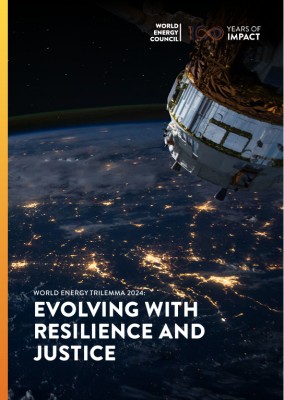
Chile World Energy Trilemma Country Profile 2024
Download PDF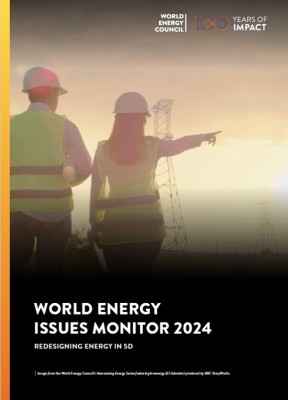
Chile Energy Issues Monitor Commentary 2024
Download PDF
World Energy Issues Monitor 2024
Download PDF


